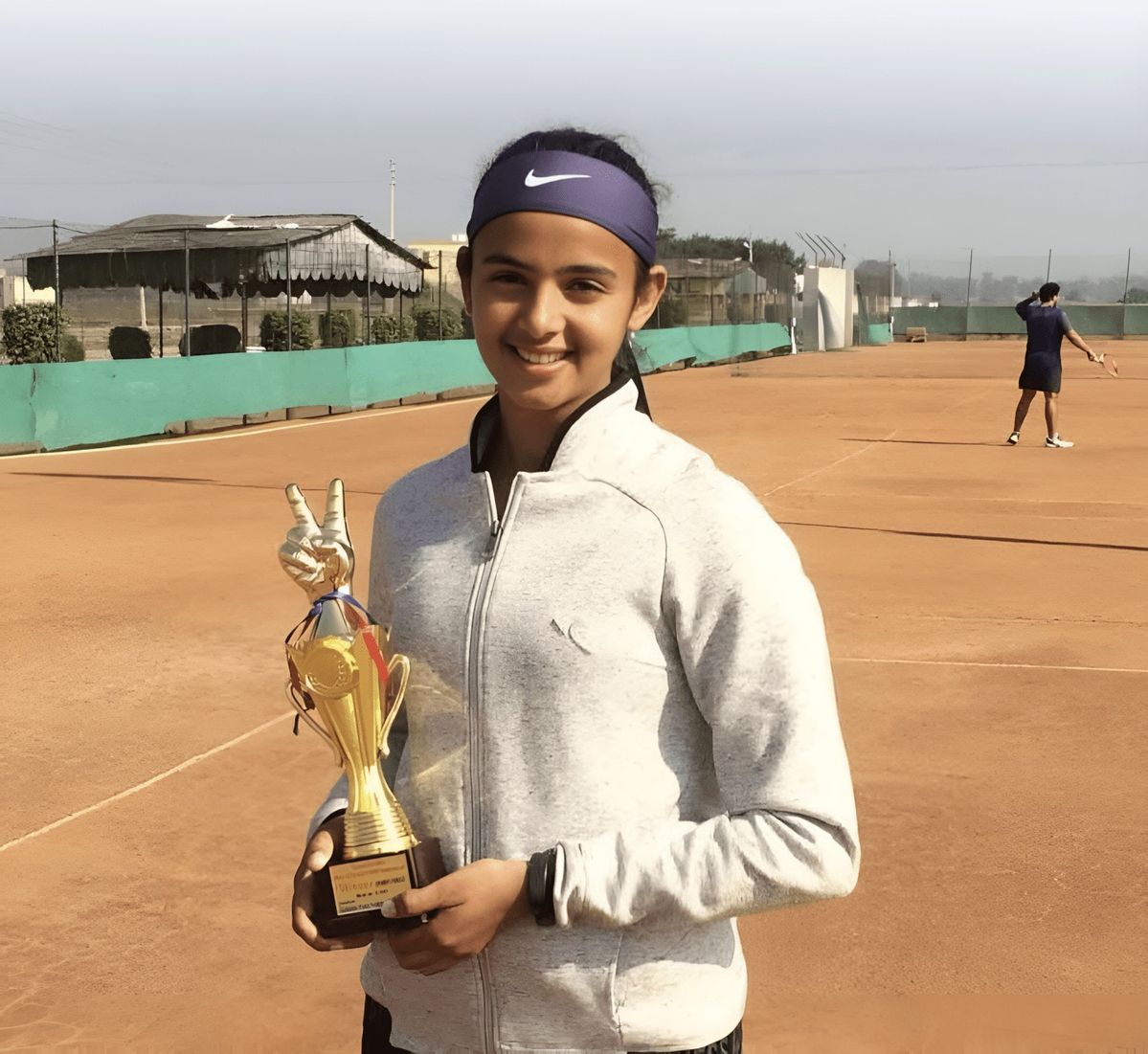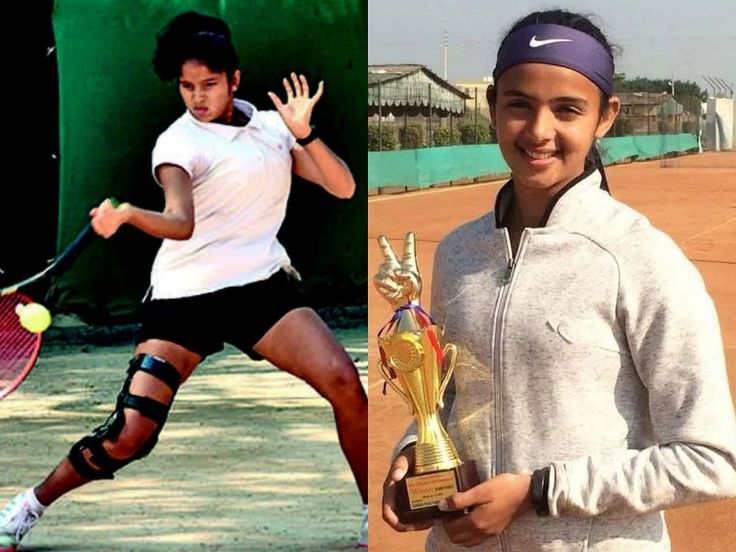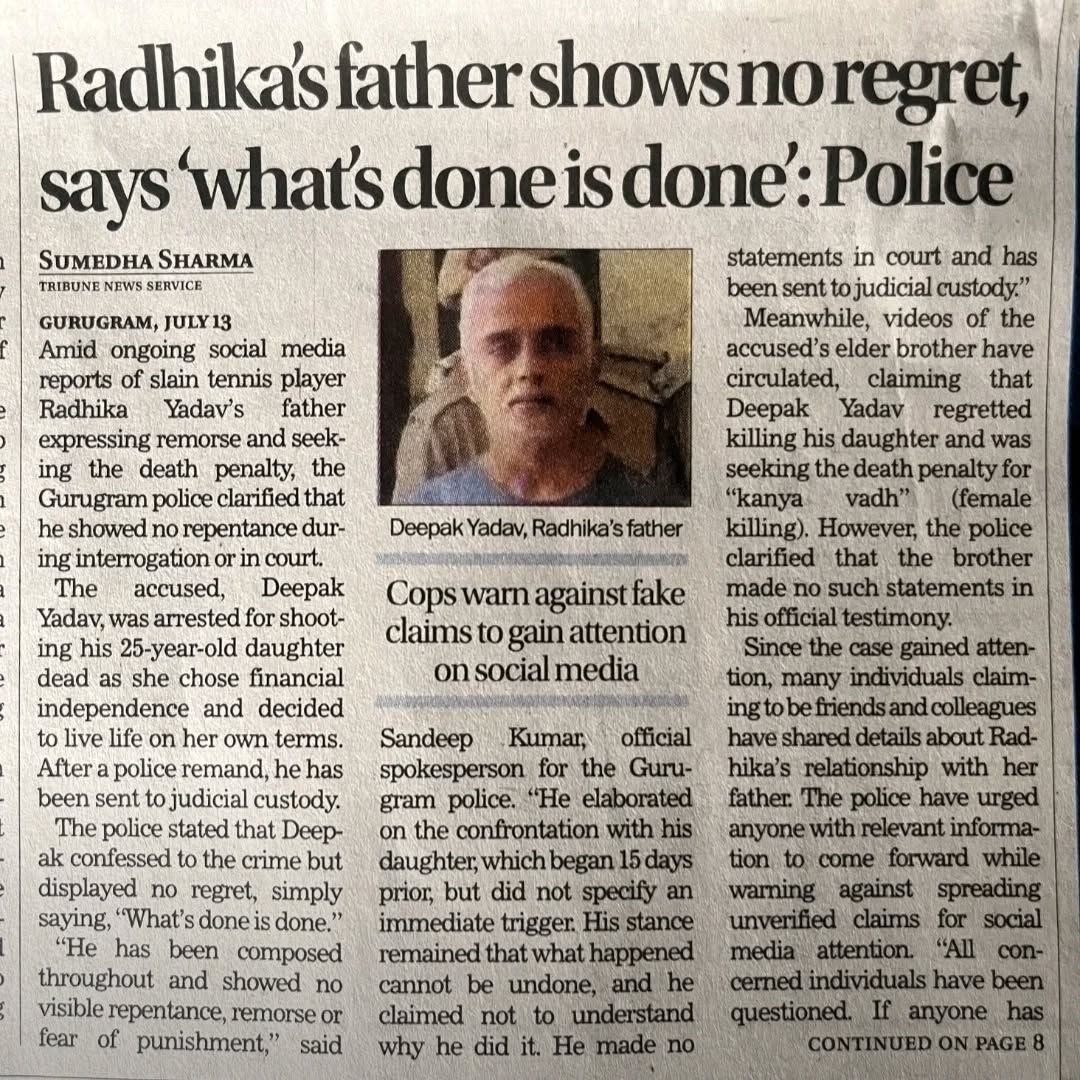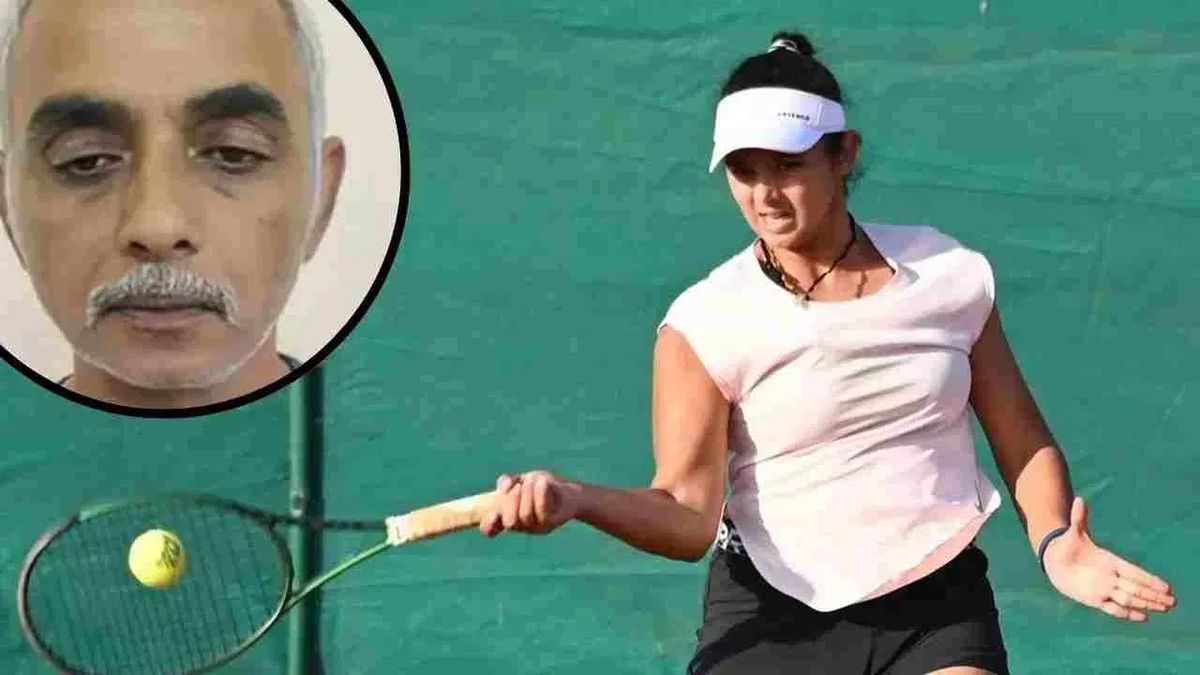The Tragedy of Radhika Yadav.
A horrifying act took place in the affluent streets of Gurugram’s Sushant Lok, shattered lives, and sparked a larger national discussion. Radhika Yadav, a 25-year-old tennis player and coach, was shot and killed by her father, Deepak Yadav, on July 10, 2025. This shocking Haryana murder case is now among the most discussed murder news India has witnessed this year.
Radhika Yadav: Who Was She?
Radhika was born on March 23, 2000, in Gurugram. She quickly progressed through the state-level tennis ranks, finishing fifth in Haryana’s women’s doubles and placing in the top 120 worldwide in girls’ doubles at the ITF.
She was more than just a tennis player—she was a mentor, coach, and dreamer. In a conservative environment, her life represented independence and self-reliance.
The Day It Happened
On the morning of July 10, around 10:30 a.m., Radhika was preparing breakfast when her father entered the kitchen armed with a licensed .32-bore revolver. Police say he fired five shots—three struck her in the back and one in the shoulder. She died instantly.
This cold-blooded murder meaning a father killing his own daughter left the nation shocked and horrified. It wasn’t just yesterday murder news, it became a larger debate about patriarchy, control, and women’s independence in India.
Profiling the Tragedy: Power, Patriarchy & Loss
This crime was not random. It revealed:
-
Freedom versus entitlement: Radhika worked hard for her career, but her father felt overshadowed.
-
Internalized patriarchy: A daughter running a coaching venture challenged traditional gender roles.
-
Tragic disconnect: Parents invest in talent but sometimes cannot accept their children’s independence.
The murder case news highlights broader Indian patterns where women’s success is often controlled, questioned, or even destroyed by patriarchal dominance.
Beyond One Case: Nationwide Impact
The Radhika Yadav murder case sparked national debates:
-
Domestic violence is not just by partners but also by male relatives.
-
Daughters’ financial independence is often weaponized against them.
-
Many family murders are quietly buried, but this girl murdered yesterday became a symbol of a wider issue.
Sports organizations and women’s groups are now demanding:
-
Fast-track trials in gender-based homicides.
-
Support networks for female athletes.
-
Community education on paternal control and toxic masculinity.
What Was the Motive?
According to police reports, Radhika’s father believed she was “disrespecting the family.” He disapproved of her independence, her focus on a sports career, and her decision not to settle into marriage.
Neighbors described him as strict, while friends revealed his conservative outlook. Radhika, however, was not rebellious—she simply wanted to live her own life, something every modern Indian woman deserves.
This tragic Haryana murder case shows how toxic control within families can turn fatal.
Legal System & Police Action
Gurugram police responded swiftly. The revolver was seized, and the father was arrested at the scene. A murder FIR was registered, and he was remanded to judicial custody within 24 hours.
CCTV footage, digital records, and testimonies from her friends and colleagues are being investigated. The trial is the next step. But no punishment can bring Radhika back.
Radhika Was More Than a Victim
Let’s not reduce her to a headline in murder news Hindi or murder news India.
She was a dreamer, a coach, and a mentor. She wanted to start her own tennis academy, and she was supporting her younger sister’s education. She had goals beyond the tennis court.
Her death is a painful reminder that autonomy is not disrespect—it is a right.
Final Reflections
The Radhika Yadav Haryana murder case demands more than mourning—it demands reform.
This was not a spontaneous crime but the result of systemic failures: patriarchy, silence, lack of counselling, and absence of protective laws against family control.
Her father, now in custody, reportedly said he “wanted to be hanged” for his actions. But the real justice will be when India confronts the structural rot that enables such tragedies.
Mention her name: Radhika Yadav.
A daughter. A sister. A teacher. A dreamer.
Her passing is not just murder case news—it is a social wound that forces us to ask: How many more daughters must die before we change?
Disclaimer
The sole purpose of this blog about Radhika Yadav’s tragic death is to share information and raise awareness. The specifics are based on reports that are available, but some of the facts might not be completely clear. This blog is not written with the intention of sensationalizing the incident or hurting the feelings of her friends, family, or anyone else involved in the case. Murder stories can be upsetting, so readers are advised to read with caution.



